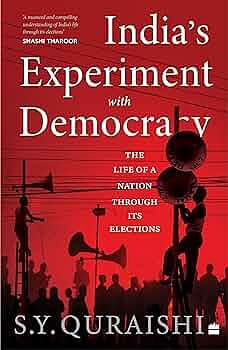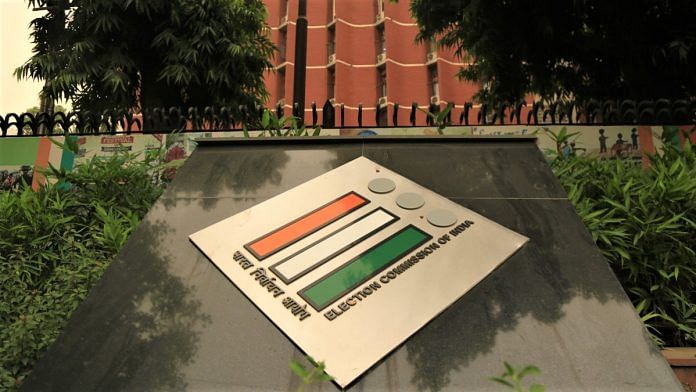The 2019 general election will long be remembered, not just for the transgressions of the top political leadership, but also for the Election Commission (EC) itself being put in the dock. The EC has repeatedly found itself at the receiving end of scathing attacks from the Opposition, the public, the media and the judiciary. This is unprecedented for what was until now the most trusted institution in the country.
Trust deficit
Indeed, the trust deficit between the ECI, the Opposition parties and the voters started with the EVM/voter-verified paper audit trail (VVPAT) saga. The EC was accused of being on the defensive rather than being communicative. On 8 April, in a letter to the President, a group of retired bureaucrats and diplomats expressed concerns over the ECI’s ‘weak-kneed conduct’, and said the institution is ‘suffering from a crisis of credibility today’.
The last two months have been a trying time for me as well. Ever since I demitted office in 2012, I have been a self-appointed spokesperson for the Election Commission, defending every action of the body that needed to be defended. I must have refused at least a hundred requests by the media to comment on the recent happenings. On the few occasions I was drawn into the debate, it was a painful struggle to find suitable words that would not sound like an indictment of the body of which I was proud to have been part of. I noticed the same predicament on the faces of two former chief election commissioners who appeared on television recently. Then I remembered the words of Martin Luther King, Jr: ‘Our lives begin to end the day we become silent about things that matter.’ And I remembered Plato: ‘I will put down your silence as consent.’
It took repeated raps on the knuckles by the Supreme Court for the Election Commission to crack the whip. It is a pity that we needed the Supreme Court to remind the ECI of the powers it always had. Article 329 of the Constitution has barred courts from interfering
in electoral matters after the election process has been set in motion. In a long chain of judgments, the Supreme Court has reiterated this provision and has restrained all courts from intervening in electoral matters. It is therefore significant that in the last couple of months, the apex court itself had to jump in to bring about a course correction. This is more serious than is realized at present.
On 15 April, a Supreme Court bench headed by the Chief Justice of India pulled up the ECI for not acting against hate speeches and statements that were on religious lines. The ECI reportedly told the apex court: ‘We are toothless, we are powerless, we issue notices, then advisory and on repeated violation, we file complaint.’ The Supreme Court was furious with this stand of ECI’s.
The Supreme Court had made this observation in 1977:
… where these [the existing laws] are absent, and yet a situation has to be tackled, the Chief Election Commissioner has not to fold his hands and pray to God for divine inspiration to enable him to exercise his functions and to perform his duties or to look to any external authority for the grant of powers to deal with the situation. He must lawfully exercise his power independently, in all matters relating to the conduct of elections, and see that the election process is completed properly, in a free and fair manner.
This has been the ECI’s Bible.
After the ECI had not acted on complaints against Prime Minister Narendra Modi and BJP President Amit Shah for almost a month, the Supreme Court ordered it to do so before 6 May. It then promptly disposed of several complaints, giving the two leaders a clean chit in
each case. Just as the EC was being written off as an impartial entity, we got the good news that at least one election commissioner had dissented on five decisions taken by the ECI—one giving a clean chit to Shah and four to Modi. He thought the Prime Minister had, in fact, invoked the armed forces in an election campaign, in violation of the ECI guidelines instructing politicians against doing so. His minority vote may not have changed the ECI verdict, but dissent is a healthy sign of objective deliberation and thus presents a ray of hope.
I can say from experience that the ECI has got away with many mistakes largely because of its credibility and people’s trust in the institution. But this trust cannot be taken for granted. The moment there is a deficit of credibility, the problems begin.
Also read: Modi doesn’t care about Parliament. He spent only 4 hours there in 2021 –…
Appointments and removals
The root of the problem lies in the flawed system of appointment of election commissioners. They are appointed unilaterally by the government of the day. There has been a demand for de-politicization of these appointments and to have them done through broad-based consultation, as it is in other countries. The uncertainty around their elevation, which is decided by a system based on seniority, makes the appointees vulnerable to government pressure. The government can control a defiant CEC through the majority voting power of the two election commissioners.
In its twenty-fifth report, the Law Commission of India recommended a collegium system for appointing election commissioners. Political stalwarts such as L.K. Advani and former
CECs B.B. Tandon, N. Gopalaswami and I supported the idea, even when in office. But successive ruling dispensations have ducked the issue, not wanting to let go of their power. It is obvious that political and electoral interests take precedence over national interests.
A public interest litigation, asking for the collegium system to be adopted was also filed in the Supreme Court in 2018, which has been referred to a Constitution bench. I feel that on issues of such vital importance, even the Supreme Court, which I have always described as the guardian angel of democracy in India, has to act urgently. If democracy is derailed, the court’s future too would be in jeopardy.
Apart from the manner of appointment of ECs, the provisions for their removal too needs correction. At present, only the CEC is protected from removal from office (except through impeachment). One has to remember that the Constitution enabled protection to the CEC as it was a one-man commission initially. This must now be extended to the other commissioners, who were added in 1993, as they collectively represent the Election Commission.
In the rich history of democratic India, all institutions of the state have come under pressure at one point or another. But the strength and credibility of an institution is tested by whether or not it buckles under political pressure.
It is unfortunate that the topic of debate is now the ECI rather than the political leaders and their appalling and unconstitutional conduct. Over forty electoral reforms have remained pending for two decades. While it seems futile to hope the political leadership will address them, it is imperative that the ECI asserts the ample authority it already possesses constitutionally. It has the full support of the Supreme Court. It must act tough. This is not merely a question of its discretionary powers, but of its constitutional duty. Governments
come and go, but the reputation of the EC stays for good.
 This excerpt from SY Quraishi’s India’s Experiment With Democracy has been published with permission from Harper Collins.
This excerpt from SY Quraishi’s India’s Experiment With Democracy has been published with permission from Harper Collins.



